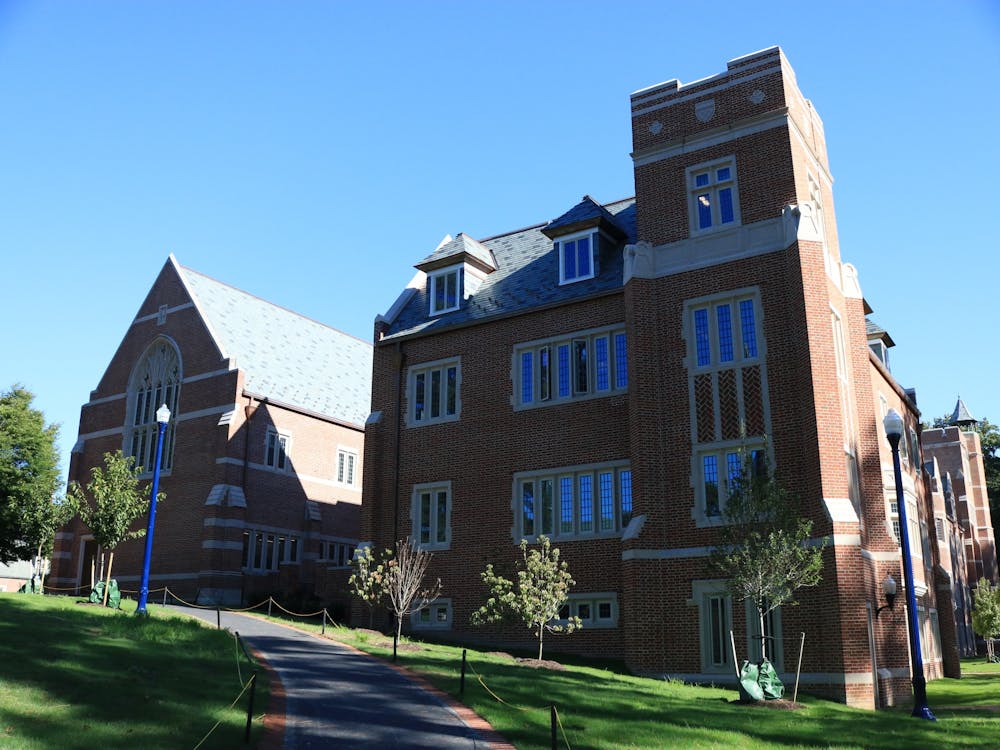This year, the number of students who have visited Counseling and Psychological Services for anxiety and stress has almost doubled since CAPS Director Peter LeViness came to the university 11 years ago.
LeViness said that he expected this number to exceed 600 by the end of the school year. During his first year at Richmond, about 310 students saw CAPS counselors for these reasons.
"I'm not really sure what it mainly comes from," said Jason Davis, senior CAPS outreach intern. "Academics are definitely a major source - and social issues - I'm not sure which is more serious."
But feeling stressed is common for students at highly selective private universities such as Richmond because of academics and excessive obligations, which cause students to feel as though they are reaching a breaking point, LeViness said.
"My high school friends who attend less academically challenging schools don't seem to face the same issues that my Richmond friends and I do," senior Natasha Berg said. "And because Richmond is such a small school, and people run in tight circles, social stresses add to student anxiety."
Berg first went to CAPS during her sophomore year to learn how to reduce her anxiety symptoms. Since then, she has visited CAPS at least once each week to learn how to eliminate her problem completely, she said.
Actions that would go unnoticed at a larger school might be emphasized at Richmond, Berg said, especially on the Internet. For example, Websites such as College ACB, which existed during Berg's freshman year, and the recent Facebook page Richmond Insults have drawn negative attentions to students.
Body image has been another trigger of social anxiety, especially for female students.
When facing these social problems, many students become distracted from classes, Davis said. And when concerned with grades, many students become more irritable toward friends, creating more social anxiety, he said.
Students are feeling stressed at a younger age, LeViness said. These feelings begin during the application process. As schools become more competitive, more students apply for fewer spots, which he said has been increasing their stress levels.
Because Richmond is a selective school, LeViness said that once on campus, students feel the need to participate in other activities such as organizations and volunteering, as well as take on double majors. These commitments leave students without time for appropriate sleep, nutrition and most importantly, exercise, each of which helps to reduce stress, he said.
Many faculty and staff members ignore these important self-help activities as well, LeViness said. This behavior is reflective of a culture focused on overworking, rather than family, health and life outside of the office, he said.
Enjoy what you're reading?
Signup for our newsletter
Although an increasing number of students are seeking help for stress and anxiety, Davis said that some students refrained from seeing counselors because of a certain stigma associated with CAPS and therapy.
Berg said that for these reasons, she has accompanied many of her friends to CAPS and now sees more familiar faces in the office.
Relationship problems, depression and family concerns are other main reasons that students visit CAPS.
Contact reporter Jamie Edelen at jamie.edelen@richmond.edu
Support independent student media
You can make a tax-deductible donation by clicking the button below, which takes you to our secure PayPal account. The page is set up to receive contributions in whatever amount you designate. We look forward to using the money we raise to further our mission of providing honest and accurate information to students, faculty, staff, alumni and others in the general public.
Donate Now


